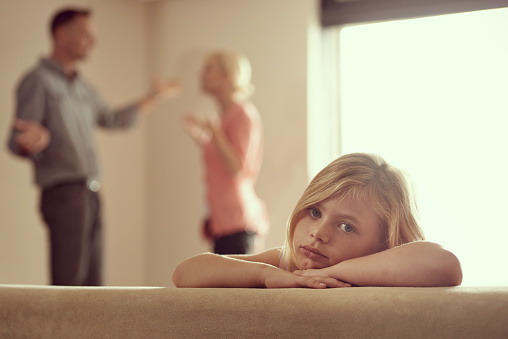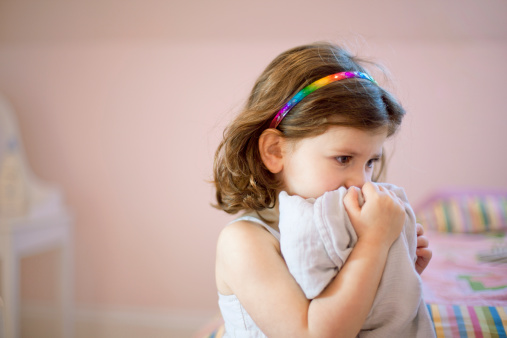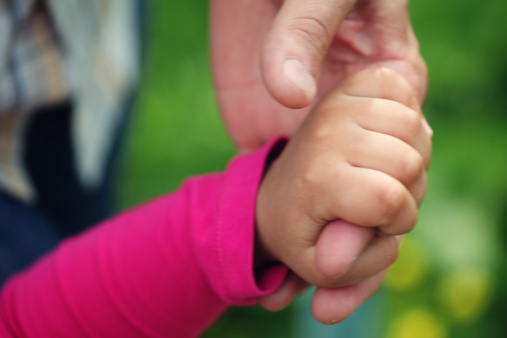 My husband and I were taking our kids to swimming lessons when we saw a man and woman standing outside the facility arguing. The anger and negative energy were palpable. While still in the parking lot, we met up with another family we know, and we exchanged uncomfortable glances as the conversation between this couple became more heated. “Awkward,” my friend whispered.
As we approached, I could hear what they were arguing about, and the expletives were flying (this is a family place, mind you, and my kids were five and two at the time – yikes!) The woman was saying, “I don’t give a $*&^ what you think. You can’t have that #$&* sleep over when it’s your weekend with our son. You are such an ^*&+@! We aren’t even divorced yet.” My five year old glanced up at me with an odd look on his face. Oh boy. I wondered if they had attorneys and what process they were using.
Even though I see this sort of conflict on a regular basis, it was very uncomfortable to witness. I’m not sure if my discomfort was because I couldn’t do anything about their conflict (I was there as a mom, not a lawyer) or because my children were in earshot. For a fleeting moment I did, however, consider going up to them. I felt compelled to inform them there is a better way to deal with this “stuff” and that a child specialist and divorce coach could get them to a better place regarding “adult sleepovers.” That was the lawyer in me.
Since we were running a bit behind, however, the mom in me picked up my two-year-old and hurried my son through the door. Either way, I felt bad for this couple, and even worse for their child. I wondered how old their son was and if they had made a scene near the pool when they decided to “take it outside.” I will never know how their divorce turned out. I can only hope that things cooled down at some point so they could focus on co-parenting their child. It’s understandable that emotions are highly charged during a divorce, which is the reason a divorce coach and child specialist are incredibly helpful during the process, as well as a therapist or counselor. Stop. Breathe. Think. And talk to a mental health professional.
My husband and I were taking our kids to swimming lessons when we saw a man and woman standing outside the facility arguing. The anger and negative energy were palpable. While still in the parking lot, we met up with another family we know, and we exchanged uncomfortable glances as the conversation between this couple became more heated. “Awkward,” my friend whispered.
As we approached, I could hear what they were arguing about, and the expletives were flying (this is a family place, mind you, and my kids were five and two at the time – yikes!) The woman was saying, “I don’t give a $*&^ what you think. You can’t have that #$&* sleep over when it’s your weekend with our son. You are such an ^*&+@! We aren’t even divorced yet.” My five year old glanced up at me with an odd look on his face. Oh boy. I wondered if they had attorneys and what process they were using.
Even though I see this sort of conflict on a regular basis, it was very uncomfortable to witness. I’m not sure if my discomfort was because I couldn’t do anything about their conflict (I was there as a mom, not a lawyer) or because my children were in earshot. For a fleeting moment I did, however, consider going up to them. I felt compelled to inform them there is a better way to deal with this “stuff” and that a child specialist and divorce coach could get them to a better place regarding “adult sleepovers.” That was the lawyer in me.
Since we were running a bit behind, however, the mom in me picked up my two-year-old and hurried my son through the door. Either way, I felt bad for this couple, and even worse for their child. I wondered how old their son was and if they had made a scene near the pool when they decided to “take it outside.” I will never know how their divorce turned out. I can only hope that things cooled down at some point so they could focus on co-parenting their child. It’s understandable that emotions are highly charged during a divorce, which is the reason a divorce coach and child specialist are incredibly helpful during the process, as well as a therapist or counselor. Stop. Breathe. Think. And talk to a mental health professional.  My husband and I were taking our kids to swimming lessons when we saw a man and woman standing outside the facility arguing. The anger and negative energy were palpable. While still in the parking lot, we met up with another family we know, and we exchanged uncomfortable glances as the conversation between this couple became more heated. “Awkward,” my friend whispered.
As we approached, I could hear what they were arguing about, and the expletives were flying (this is a family place, mind you, and my kids were five and two at the time – yikes!) The woman was saying, “I don’t give a $*&^ what you think. You can’t have that #$&* sleep over when it’s your weekend with our son. You are such an ^*&+@! We aren’t even divorced yet.” My five year old glanced up at me with an odd look on his face. Oh boy. I wondered if they had attorneys and what process they were using.
Even though I see this sort of conflict on a regular basis, it was very uncomfortable to witness. I’m not sure if my discomfort was because I couldn’t do anything about their conflict (I was there as a mom, not a lawyer) or because my children were in earshot. For a fleeting moment I did, however, consider going up to them. I felt compelled to inform them there is a better way to deal with this “stuff” and that a child specialist and divorce coach could get them to a better place regarding “adult sleepovers.” That was the lawyer in me.
Since we were running a bit behind, however, the mom in me picked up my two-year-old and hurried my son through the door. Either way, I felt bad for this couple, and even worse for their child. I wondered how old their son was and if they had made a scene near the pool when they decided to “take it outside.” I will never know how their divorce turned out. I can only hope that things cooled down at some point so they could focus on co-parenting their child. It’s understandable that emotions are highly charged during a divorce, which is the reason a divorce coach and child specialist are incredibly helpful during the process, as well as a therapist or counselor. Stop. Breathe. Think. And talk to a mental health professional.
My husband and I were taking our kids to swimming lessons when we saw a man and woman standing outside the facility arguing. The anger and negative energy were palpable. While still in the parking lot, we met up with another family we know, and we exchanged uncomfortable glances as the conversation between this couple became more heated. “Awkward,” my friend whispered.
As we approached, I could hear what they were arguing about, and the expletives were flying (this is a family place, mind you, and my kids were five and two at the time – yikes!) The woman was saying, “I don’t give a $*&^ what you think. You can’t have that #$&* sleep over when it’s your weekend with our son. You are such an ^*&+@! We aren’t even divorced yet.” My five year old glanced up at me with an odd look on his face. Oh boy. I wondered if they had attorneys and what process they were using.
Even though I see this sort of conflict on a regular basis, it was very uncomfortable to witness. I’m not sure if my discomfort was because I couldn’t do anything about their conflict (I was there as a mom, not a lawyer) or because my children were in earshot. For a fleeting moment I did, however, consider going up to them. I felt compelled to inform them there is a better way to deal with this “stuff” and that a child specialist and divorce coach could get them to a better place regarding “adult sleepovers.” That was the lawyer in me.
Since we were running a bit behind, however, the mom in me picked up my two-year-old and hurried my son through the door. Either way, I felt bad for this couple, and even worse for their child. I wondered how old their son was and if they had made a scene near the pool when they decided to “take it outside.” I will never know how their divorce turned out. I can only hope that things cooled down at some point so they could focus on co-parenting their child. It’s understandable that emotions are highly charged during a divorce, which is the reason a divorce coach and child specialist are incredibly helpful during the process, as well as a therapist or counselor. Stop. Breathe. Think. And talk to a mental health professional. 




 Divorce is a challenging life experience for children, and parents worry what the impact will be on their children’s lives. Based on my work with families of divorce, I have three specific suggestions for how parents can empathetically support their children during this difficult and often painful transition:
1. Never put your children in the middle of parental conflict.
This cannot be overstated: exposure to parental conflict is toxic for children. Heated arguments around children, even if parents believe their children can’t overhear, negatively charge the environment in the home, and kids will feel it. Critical or disrespectful words about a parent said by the other parent in the hearing range of their children make kids confused, sad and often angry. I have heard many stories from tearful children about trying to get parents to stop arguing and belittling each other. You would never feed your children poisonous food; do not make them absorb poisonous words.
2. Remember that children deserve the best safe parenting they can get from both parents.
Be civil, treat each other with courtesy and remind your children that both parents love them. Despite your hurt, anger or betrayal as a spouse, remember that your child’s relationship with and feelings about your soon-to-be-ex are separate from yours. Resist the urge to try to get your child on your side, or to alienate your child from the other parent. Of course real safety concerns must be addressed and may result in protective measures like supervised parental access. But it is not fair to try to negatively manipulate your child’s feelings about the other parent just because you are angry.
3. Listen to your children and stay attuned to their needs.
The emotional and time demands of a divorce can understandably absorb parents’ time and attention at the exact time their children may need extra reassurance. Because regular routines are usually reassuring to children, try to designate time to spend with your children doing normal family activities. Let them know whatever feelings they have about the divorce are okay, and you will always love and support them. Check in with them to see how they’re doing, but read their cues if they tell you you’re asking too often.
Divorce is a challenging life experience for children, and parents worry what the impact will be on their children’s lives. Based on my work with families of divorce, I have three specific suggestions for how parents can empathetically support their children during this difficult and often painful transition:
1. Never put your children in the middle of parental conflict.
This cannot be overstated: exposure to parental conflict is toxic for children. Heated arguments around children, even if parents believe their children can’t overhear, negatively charge the environment in the home, and kids will feel it. Critical or disrespectful words about a parent said by the other parent in the hearing range of their children make kids confused, sad and often angry. I have heard many stories from tearful children about trying to get parents to stop arguing and belittling each other. You would never feed your children poisonous food; do not make them absorb poisonous words.
2. Remember that children deserve the best safe parenting they can get from both parents.
Be civil, treat each other with courtesy and remind your children that both parents love them. Despite your hurt, anger or betrayal as a spouse, remember that your child’s relationship with and feelings about your soon-to-be-ex are separate from yours. Resist the urge to try to get your child on your side, or to alienate your child from the other parent. Of course real safety concerns must be addressed and may result in protective measures like supervised parental access. But it is not fair to try to negatively manipulate your child’s feelings about the other parent just because you are angry.
3. Listen to your children and stay attuned to their needs.
The emotional and time demands of a divorce can understandably absorb parents’ time and attention at the exact time their children may need extra reassurance. Because regular routines are usually reassuring to children, try to designate time to spend with your children doing normal family activities. Let them know whatever feelings they have about the divorce are okay, and you will always love and support them. Check in with them to see how they’re doing, but read their cues if they tell you you’re asking too often.  Co-parenting can be challenging even in the most amicable divorces, but there are some personalities disorders that make co-parenting downright difficult. Among these include, but are not limited to: bipolar disorder, borderline personality disorder, and narcissistic personality disorder. We are going to focus on narcissists in this post. Narcissists have a magnified sense of self-importance and lack they empathy for others. Narcissists insist on getting their way regardless of how it may affect others, even their own children. They may make promises to the children in order to gain compliance from the child, then refuse to honor the promises. They can be arrogant, self-centered, manipulative, demanding, and vain. As co-parents, these individuals often feel superior to their former spouse. It is challenging to reason with a narcissist, or attempt to try to get them to see the situation from someone else’s point of view, which makes co-parenting together a great feat.
Sound familiar? Most importantly you must know that your ex’s personality disorder does not need to define your divorce. One of the best things that you can do in this situation is file a parenting plan with the courts. A parenting plan will outline anything from daily routines to holiday schedules. When dealing with a narcissist the more information you have laid out in writing, the more black and white it becomes. A parenting plan with help to maintain firm boundaries with your ex.
When co-parenting with a narcissist you may need to keep your expectations low. You cannot expect the narcissist to tackle parenting with the same parental instincts that you have. What seems like second nature to you, may never cross a narcissist’s radar. Because a narcissist places no value on their children’s feelings, there will likely be emotional messes to clean up. Get your children (and you) into therapy and make it a regular and “normal” part of their lives.
Take comfort in knowing that you are not alone. There are support groups out there, both online and in person, that are aimed specifically towards coping with a narcissistic ex. Divorce is never easy on children. Coping with a narcissistic parent makes a stressful situation even more difficult, but not impossible. Educate yourself on co-parenting through these challenging times, and also commit to self-care to provide some reprieve.
Co-parenting can be challenging even in the most amicable divorces, but there are some personalities disorders that make co-parenting downright difficult. Among these include, but are not limited to: bipolar disorder, borderline personality disorder, and narcissistic personality disorder. We are going to focus on narcissists in this post. Narcissists have a magnified sense of self-importance and lack they empathy for others. Narcissists insist on getting their way regardless of how it may affect others, even their own children. They may make promises to the children in order to gain compliance from the child, then refuse to honor the promises. They can be arrogant, self-centered, manipulative, demanding, and vain. As co-parents, these individuals often feel superior to their former spouse. It is challenging to reason with a narcissist, or attempt to try to get them to see the situation from someone else’s point of view, which makes co-parenting together a great feat.
Sound familiar? Most importantly you must know that your ex’s personality disorder does not need to define your divorce. One of the best things that you can do in this situation is file a parenting plan with the courts. A parenting plan will outline anything from daily routines to holiday schedules. When dealing with a narcissist the more information you have laid out in writing, the more black and white it becomes. A parenting plan with help to maintain firm boundaries with your ex.
When co-parenting with a narcissist you may need to keep your expectations low. You cannot expect the narcissist to tackle parenting with the same parental instincts that you have. What seems like second nature to you, may never cross a narcissist’s radar. Because a narcissist places no value on their children’s feelings, there will likely be emotional messes to clean up. Get your children (and you) into therapy and make it a regular and “normal” part of their lives.
Take comfort in knowing that you are not alone. There are support groups out there, both online and in person, that are aimed specifically towards coping with a narcissistic ex. Divorce is never easy on children. Coping with a narcissistic parent makes a stressful situation even more difficult, but not impossible. Educate yourself on co-parenting through these challenging times, and also commit to self-care to provide some reprieve. 
